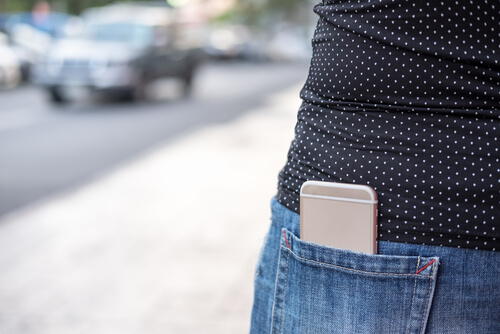Smartphones - Do They Make Us Stupid?

Technology, smartphones in particular, makes life easier and more pleasant. We can access more information, do more things in less time, and communicate with more people. But that doesn’t necessarily make us more productive or intelligent.
Actually, smartphones reduce cognitive capacity. At least that’s what a study from the University of Texas at Austin claims. According to the study, cognitive capacity and global brainpower are significantly reduced when your smartphone is nearby, even when it’s turned off and face-down.
A smartphone is more than a phone. It’s a mini computer that has an enormous capacity to connect us to information, entertainment, and social stimulation on-demand. However, this study suggests that we pay a cognitive price for these benefits, and the dependency that we develop on them.
The simple presence of a smartphone can reduce cognitive capacity, according to the study.

The cognitive cost of smartphones
Smartphones facilitate and encourage constant connection not only with other people, but also information and entertainment, putting the world at our fingertips. However, while these devices have an immense potential to improve our well-being, their constant presence can have a significant cognitive cost.
The study supports a hypothesis that researchers call brain drain. It states that the mere presence of a smartphone can hijack cognitive resources that already have a limited capacity, leaving less resources available for other tasks and decreasing cognitive performance. This happens when you have to work to avoid the temptation to look at your smartphone. The cognitive cost is higher the more dependent you are on your phone.
Smartphones don’t make us smarter
In one experiment, researchers asked participants to sit at a computer and perform a series of tests that required a high level of concentration. The tests measured the available cognitive capacity of each participant, or the capacity to store and process information at a given moment. Before starting, they randomly selected groups of participants to put their smartphones on silent and put them either face-down on the desk, in their pocket or bag, or in another room.
The researchers found that the participants who had their smartphones in another room significantly outperformed those who had them on the desk. They also slightly outperformed those who had them in their pocket or bag.
The results suggest that the a smartphone in the vicinity reduces available cognitive capacity and affects cognitive functioning, even when you feel like you’re focusing all of your attention on the task you’re performing.
“We see a linear trend that suggests that as the smartphone becomes more noticeable, participants’ available cognitive capacity decreases,” explained the researchers. “Your conscious mind isn’t thinking about your smartphone, but that process — the process of requiring yourself to not think about something — uses up some of your limited cognitive resources. It’s a brain drain.”

In another experiment, the researchers attempted to identify the influence of smartphone dependence on cognitive capacity.
The participants were asked to perform the same tests on a computer, with groups randomly assigned. One group did the tests with their phones next to them face-up, another with their phones in their pockets, and another with their phones in another room. Some in each group were asked to turn their phones off.
The researchers found that the participants who identified themselves as more dependent on their smartphones did worse compared to those who were less dependent, but only when the phone was on the desk or in their pocket. They also found that it didn’t matter if the phone was on or off, or whether it was face-up or face-down on the desk.
The researchers explained that the participants were not distracted because they were getting notifications, but just because the phone was nearby.
Having a smartphone nearby reduces the ability to concentrate and perform tasks, because part of the brain is making an active effort to not use it.
Is it smarter to avoid smartphones?
While the researchers focused on the cognitive costs associated with the presence of smartphones, the study is equally significant in its implications for their absence. Debates over social disconnection in our culture reflect a growing interest among consumers to intentionally reduce, or at least control, the time they spend on electronic devices.

The researchers note that some consumers are replacing their smartphones with less advanced phones or complementing them with devices or functions that offer a short break from them. Others are turning to apps that restrict, filter, and limit the use of their smartphone.
Research suggests that these measures can be twice as beneficial for those with technology exhaustion. By redefining the importance of their devices, these consumers can reduce their digital distraction and increase their available cognitive capacity.
In any case, keep this in mind – every time you need to optimize control over your attention and cognitive function, keep your smartphone out of sight.
This text is provided for informational purposes only and does not replace consultation with a professional. If in doubt, consult your specialist.








